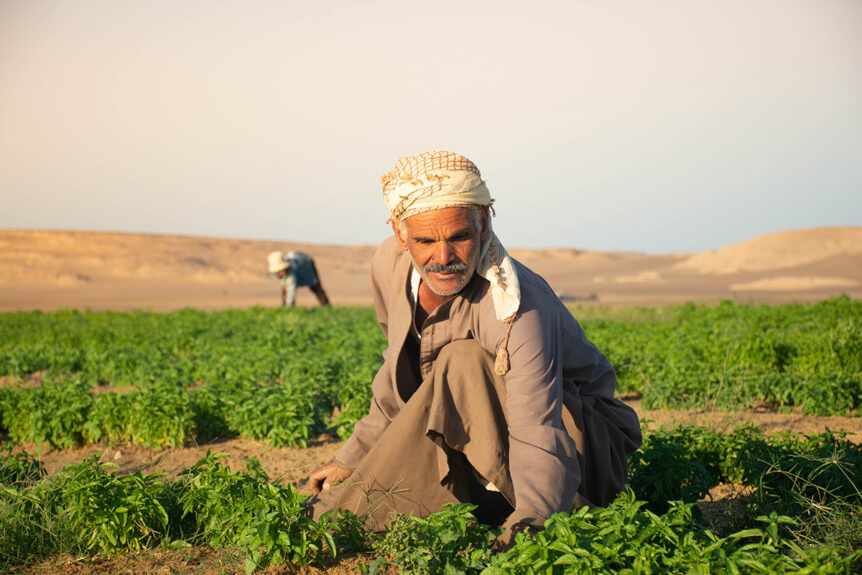The SustInAfrica project has been making remarkable strides towards promoting sustainable agriculture and enhancing ecosystem services over the past two years. As we delve into the highlights of the project’s activities and achievements in the fourth year of operations, it is evident that the collaborative efforts of various partners and work packages (WPs) have been instrumental in driving positive change.
Key Activities
After 48 months of program implementation and two years since the last reporting period, from September 2022 to September 2024, the project has reached significant milestones. Here are some of the key achievements:
WP1: Baseline analysis & monitoring systems
- One of the crucial activities undertaken by the SustInAfrica project was the comprehensive collection and analysis of baseline data related to the current status of selected ecosystem services and the socio-economic, agronomic, and institutional systems in the project regions. This involved semi-quantitative surveys, focus group discussions, and verification workshops to ensure the quality and accuracy of the data collected.
WP2: Smart farming technologies for plant production
- The project also focused on implementing smart monitoring tools in the agricultural sector, with hands-on testing conducted in field campaigns in West and North Africa. These campaigns, which took place in Ghana and Tunisia, involved testing smart farming tools such as Bluleaf for irrigation management and Insectamon for pest insect detection in crops like olive, mango, and pineapple. Workshops were organized to train local farmers on the use of these technologies to enhance their agricultural practices.
WP3: Targeted design & implementation of demonstration trials
- In WP3, crop-specific demonstration trials were carried for the 2nd year using various agro-ecological tools and approaches in the focus countries. These trials included practices such as inter- and cover cropping, biochar and compost usage, biostimulants, improved crop rotations and crop varieties, targeted inorganic fertilizer application, and no tillage, tailored to the agro-ecological specifications of each country.
WP4: Education & training approaches
- In addition to on-the-ground activities, the project developed training materials for workshops and created educational content for the web-platform Mergedata. The project’s focus on education and training aims to empower farmers and participants with the knowledge and skills needed to adopt sustainable agricultural practices. The project also concluded a series of in-person training programs aimed at practitioners, educators, agri-food service providers, international donors, and decision-makers. These sessions included the 2nd In-Person Training, followed by a 2nd revision of the Education & Training Concept, and culminated in the 3rd In-Person Training. A total of 434 farmers, students, and teachers were trained, equipping them with essential skills and knowledge to drive sustainable practices in agriculture.
WP5: Sustainability, replicability, and exploitation of successful practices
- In WP5, a project dashboard has been developed to assess readiness and track progress. Each technology is analyzed and scored based on its climate resilience, environmental, and social impact, ensuring sustainability. A methodological framework for replicability analysis has been established and defining the agri-food system, its context, and the key actors involved has also been developed. Additionally, the potential for replicability, a review of country-level Intellectual Property (IP) frameworks, and identifying institutional barriers to adoption and commercialization have been also assessed. This comprehensive approach is key to fostering innovation and scalability in the sector.
WP6: Communication and dissemination
- Dedication was shown to ensuring active communication about the project’s results through various platforms, including the SustInAfrica website, newsletters, and social media. In addition to these channels, findings were actively disseminated at conferences, events, and through scientific publications. Support was provided to other work packages by organizing workshops, further enhancing collaboration and knowledge sharing within the community.
Next Steps: Moving Forward
- The SustInAfrica project will focus on analyzing socio-economic and agroecological data to develop research papers in collaboration with partners. A final multi-scale synthesis of data and farming systems will be carried out as well as an assessment of the targeted AEZs. The project also aims to design a general long-term monitoring toolbox to track progress and impact in the field of sustainable agriculture.
- Introducing innovative tools like Insectamon, an AI-based tool for insect monitoring, and low-cost remote sensing concepts for agriculture further demonstrates the project’s commitment to leveraging technology for sustainable farming practices. Demonstration plots, publications, capacity-building activities, and the synthesis of results will play a crucial role in disseminating knowledge and best practices to stakeholders.
- Final In-person training sessions and the development of an academic framework will ensure the sustainability and scalability of project outcomes. Stakeholder analysis, technology readiness assessments, and engagement with diverse stakeholders will be key focus areas for the project moving forward.
- Focusing on evaluating the scalability and readiness of our technologies to ensure effective implementation across various contexts and identifying the best pathways for commercialization, allowing our innovations to reach the right markets and stakeholders while assessing each technology based on its potential impact, sustainability, and alignment with our project goals.
- By promoting publication production and discussions on academic curriculum development, the SustInAfrica project is paving the way for a more sustainable and resilient agricultural sector in the focus countries.
Stay tuned for more updates on the SustInAfrica project as it continues to drive positive change and innovation in sustainable agriculture in West and North Africa!

